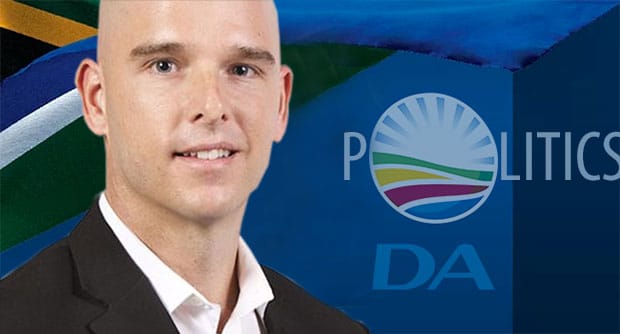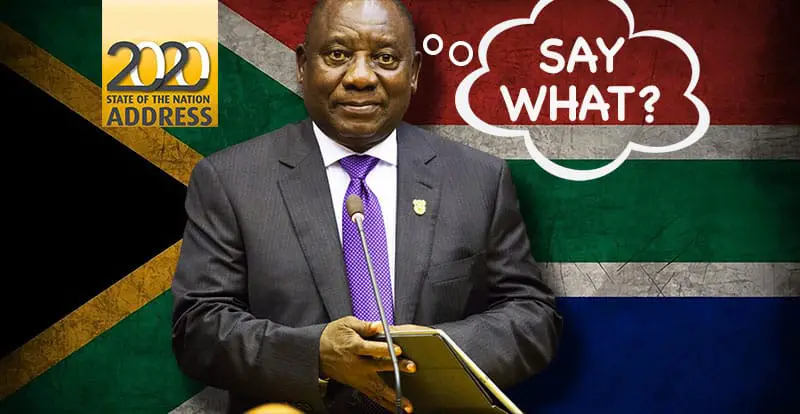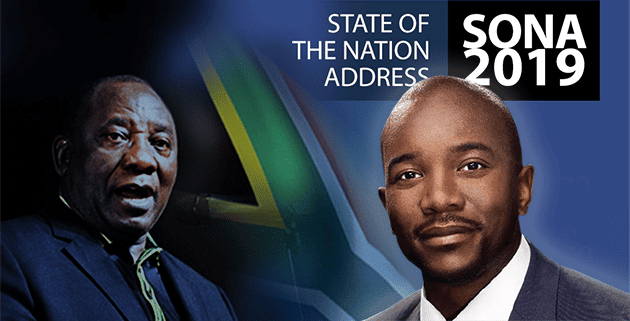South Africans Object to NHI Bill
JOHANNESBURG, 25 November 2019 – The Democratic Alliance (DA) submitted 87 000 public objections to Parliament on the National Health Insurance (NHI) Bill during a press conference today. Objections are set to close this week, on Friday 29 November.
Speaking at the press conference, the DA Chief Whip, Natasha Mazzone MP, DA Shadow Minister of Health, was joined by Siviwe Gwarube MP, DA Deputy Shadow Minister of Health, Lindy Wilson MP, and the DA Member of the National Council of Provinces, Mbulelo Bara MP.

“Since the introduction of this Bill this year, the DA has been engaged with this legislative process. We have ensured that Parliament exercises its oversight role and fulfilled its obligations to the people of South Africa of being a separated legislative arm of our state. Despite the many challenges – which were raised by the DA at every turn – we have influenced the process by being actively involved in the committee and how it conducted its work.
“The first hurdle was compelling Parliament to obtain a legal opinion on the constitutionality of the Bill before we even began with the public participation process. This was critical. Parliament cannot neglect its role in lawmaking. That is why there is a legal services division within the institution for this very reason. It does not serve the interests of the ANC, but that of Parliament in an impartial and non-partisan manner. Despite the finding by the state law advisor stating that the NHI Bill meets constitutional muster, we will reserve our right to have this established by our own legal team once the process is complete. It will be important to look at the roll-out of this Bill in its entirety and Parliament’s role when considering legal action.
“The DA also fought for and succeeded in getting the submission deadline for the public comments extended to the 29th of November. We always held that South Africans needed more time to make these submissions, more so considering the implications of the Bill but also the many questions that remained unanswered. We could not allow the ANC to simply make decisions about the legislation based on their own rushed timelines for a political win. This goes far beyond the narrow political interests of any organization. It is truly about the future of the country.
“We have, during this time, met with various academics, public health specialists, the private sector and civil society organizations. We have also conducted our own public meetings across the country. The idea behind this process that the DA undertook was to ensure that our submission to parliament is well-informed and as a result of extensive consultation.
“We have also done a clause by clause legal analysis of the Bill which has also informed this submission. We are confident that we have covered our bases and truly represented the people of South Africa as the official opposition.
When the DA launched its alternative ‘Sizani Universal Healthcare‘ plan, the party affirmed South Africans of the following:
- The healthcare system in South Africa is broken in many ways. It reflects the deep inequalities of our country in the most painful way. 84% of the people in this country who rely on the public health system are subjected to some of the most horrific conditions. These range from critical staff shortages; crumbling infrastructure; service pressures where facilities are simply unable to cope with the volumes of people who walk through their doors and the increasing burden of disease.
- Those who rely on the private health industry – 16% of South Africans – do so at rising costs which have become unaffordable as the country’s economy crumbles.
According to the DA, there are many reasons why South Africa’s health system has ended up where it is today. These include:
- A lack of a systemic overhaul of healthcare in the country to take into account the growing demand of an expanding population and its increasing reliance on the public health system;
- Lack of innovation which would include more public/private partnerships;
- Lack of meaningful focus on preventative healthcare instead of only the curative approach;
- The growing distrust between the public health system and the private health industry;
- The tendency to ‘throw money at the problem’. The public health system spends over R222 billion on healthcare, one of the highest GDP allocations in the world with very poor health outcomes to show for it;
- The lack of political accountability for those who steal and waste public money. It has been revealed that over R20 billion is lost to corruption each year while R39 billion is lost to waste, abuse and fruitless and wasteful expenditure. That is almost R60 billion of public money per year that could go towards improving the health system for South Africans.
The DA’s thorough analysis of the Bill found 25 reasons why the Bill in its current form is deeply flawed and will not achieve quality healthcare for all. These reasons were included in the DA’s submission to Parliament. However, they can be grouped under the following:
Poor governance structures:
- The Bill makes provision for the establishment of an NHI fund which will essentially be another State-Owned Enterprise. Our experience as a country has proven that we can never truly entrust a public service that is provided by an SOE because of how poorly they have been managed and how prone to corruption they have been. Any centralization or nationalization of public funds does not provide for adequate accountability mechanisms and therefore is simply a poor governance model;
- The board that will manage the board will be appointed by the Minister of Health. Political appointments open the entire process to political manipulation without adequate checks and balances;
- The investigative unit that will deal with any cases of impropriety and corruption will be located within the fund and inevitably within the Minister’s sphere of influence;
- The failed NHI pilot projects which were rolled out across the country at an R5 billion price tag failed spectacularly. They demonstrated the state’s incapacity to rolling out this massive and intricate model. Healthcare professionals who worked on the projects were never paid for their services and yet the state seeks to roll this out on a national scale, including the private sector too.
Too many vague elements of the Bill:
- Months after the Bill was published, we are still unclear about which package of services will be provided under an NHI environment;
- The role of medical aids and healthcare providers/funders is still unclear;
- The fragmenting of the health system will lead to the recipients of healthcare unable to hold their local and provincial governments to account. The national department taking over central hospitals will compound this matter;
- Furthermore how complaints are dealt with in this system is vague;
- The referral pathway that consumers must follow is complicated, takes away choice and removed the autonomy of healthcare providers;
- The Bill does not address the systemic failure of healthcare and the quality of the service being offered to people;
Funding of the Bill is in question:
Treasury has – during the recent medium-term budget policy statement – indicated that NHI is unaffordable. The DA has long held that the answer to quality healthcare is not a flawed funding model. It is a systemic overhaul of the system. Therefore the diagnosis of what is wrong with the health system is incorrect. South Africa could – in an optimal economic environment with strict accountability mechanisms – be able to roll out universal healthcare.
Constitutionality:
The DA has long held that the clear erosion of the provincial powers in the Bill goes against the National Health Act of 2003 and to an extent the provisions contained in schedule 4 of the Constitution. This will be teased out and tested by our legal team when the time comes.
In addition to this, how foreign nationals are to be treated according to this Bill is deeply problematic and quite frankly goes against section 27 of the Constitution. The Bill only provides for emergency medical care to be provided for the asylum seekers and those who are in the country illegally. This could then mean section 27 would have to be amended if we are deviating from it.
There is also the question around the potential incorrect tagging of the Bill as a money Bill. All Bills dealing with allocation and division of revenue are meant to be tagged at Money Bills and can only be introduced to Parliament by the Minister of Finance. While the Minister of Health, Dr Zweli Mkhize, has vehemently held that this Bill – while it deals with a personal income tax imposed burden – is not a money Bill, they are yet to be legally determined. The state law advisor who provided the legal opinion for Parliament did not deal with this matter.
Flawed parliamentary public participation:
Over the past several weeks, the portfolio committee on health has been engaged in a public participation process. “We have hosted public hearings in Mpumalanga, Northern Cape, Limpopo, and KwaZulu Natal. What has been clear is what we suspected all along. South Africans are not properly informed about the contents of this Bill,” said the DA.
Four hearings were held at each province. The DA fought and won the battle to ensure that hearings are held in both rural and urban areas.
“People have raised the quality of healthcare as their main concern. They have been misled – as is clear from their submissions – that this Bill will fix what is broken with the health system. It will not. While he DA respects the views of all South Africans whether they support or reject the Bill, what we have heard are the views of people who have been let down by a health system for 25 years.
“We have also seen the hijacking of the hearings in certain provinces where fraudulent leaflets spreading misinformation and misleading the public have been distributed. These were produced with the parliamentary details, giving people the impression that they have been produced by Parliament and urging people to sign their consent to support the Bill. We have reported the case to the Chair of Chairs, Cedrick Frolick, in order to ensure that those forms are not submitted as part of ordinary submissions because they are fraudulent.”
Way forward:
“Our members on the National Assembly portfolio committee on health will continue to attend the public hearings and continue to compile a body of evidence on how the hearings have been conducted in order to ascertain whether these have truly served the purpose of obtaining public sentiment without political influence.
“Once the Bill is passed on to the National Council of Provinces, we will request that it be considered by Parliament’s legal services once again. The reason for this is that the NCOP, as a different House of Parliament needs to satisfy itself of the constitutionality of the Bill based on our mandate as the NCOP. We will specifically request that the provincial roles be defined explicitly. While the National Assembly could consider this Bill with vague provincial powers, we cannot afford to do so as the NCOP. We will then also ensure that a full public participation process is rolled out by the NCOP where the areas that were not visited by the National Assembly are covered by the NCOP.
“Gone are the days where the NCOP simply timber stamps the decisions made by the National Assembly. We have to fulfil our constitutional mandate of ensuring that we do right by the people of South Africa and represent the provinces well,” the DA said.
Conclusion:
“The DA has been the only political party that has mounted a decent fight against this disastrous bill. Today, we are handing over to Parliament our submission as the official opposition but also carry with us the submissions and objections of 87 000 South Africans who have sought to make their voices heard through the petition that the DA ran.
“We will ensure that no submission is over-looked and that the portfolio Committee considers each and every submission made.
“We want the healthcare system of this country to work. However, we need to make sure that we do so effectively, efficiently and with the citizens in mind. We must ensure that the path to universal healthcare is not paved with bad policy and even worse legislation. That is the fight the DA will continue to mount,” concluded the DA.





